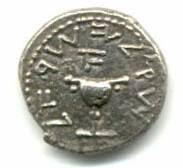Richard Overy's The Battle of Britain: Myth and Reality is a high-level look at one of the most fateful battles in modern history.
Richard Overy presents an analysis of the Battle of Britain that ends some of the myths of the Battle and points out that the two sides fought under parallel misconceptions that shaped the battle:
The British thought the Luftwaffe was more powerful than it actually was at the time.
The German thought that the RAF's Fighter Command was weaker than it actually was.
It turns out the fighter strength that two sides committed to the battle that were relatively evenly matched, and the two misconceptions then affected both side's actions in the fight.
Overy also analyses the fateful decision by the Germans to shift from attacking Fighter Command's airfields to bombing cities and notes the while it was ordered by Hitler after the relatively ineffectual RAF bombing of Berlin, the shift had been in the works for some time and was not decided solely on the basis of revenge for the Berlin raid. This shift, brought on by the German's misguided analysis that Higher Command was a spent force, helped further relieve pressure on Fighter Command and caused the fight to tilt even further in the RAF's favor. Both sides continued to misapprehend and misunderstand the other's aircraft production and readiness for far beyond the battle itself.
The result of the Battle ended the German possibility of invading the British home isles, even if British fear of a German invasion lingered for some time after the battle had ceased.
A very engaging book, if you want a very quick and high-level look at the battle, it's worth a read.

5 comments:
Hey Aaron;
I have heard that also, what also helped the British was the Radar stations at Dover and that the British were fighting over their home so when a plane got shot down and the pilot survived, he would be back in the fight whereas the Germans would be captured. Also the fuel issues, Germany's Luftwaffe was a tactical force, not a strategic force and it showed in their planes and tactics.
Thanks, I'll add it to the list!
I have been of the opinion for some time that Hitler was not really serious about invading England after France fell. I think what Hitler really wanted, and what Goering thought he could deliver, was that the Luftwaffe would cripple Fighter Command, and then be free to bomb english cities, the British government would then accept a peace treaty giving Hitler free reign in the East. The propaganda films of the "preparation" for "Sea Lion" seem ludicrous. Cutting the bows off of river barges to be fitted with ramps and then be TOWED across the channel, really? With the Home Fleet largely intact? Considering the time, materials, men and planning involved in the Normandy invasion, I just don't see how Germany could afford the men, warships, equipment, and supplies needed for a successful invasion.
The Chain Home radar system was also far more effective than the German's believed. The British had the communications required nailed down, and no matter where the Luftwaffe came from, the RAF was there to meet them.
MrGarabaldi: The radar stations played an mportant role. Unfortunately as related in the book, the Germans did often try and machine-gun Brits in their parachutes for exactly that reason - they could be right back in the fight, while the Brits taking the germans prisoner had no need to shot them down in their chutes.
OldNFO: Its a quick but good read, strong on the high-level details, not so much on the tactical considerations.
Nuke Warrior: The book relates that Hitler expected the Brits to capitulate and enter into negotiations, especially if their air force was defeated and they were subject to unhindered aerial bombardment. It seems he did push for an invasion but the German Navy wisely balked and the prerequisites for such an invasion were ever met.
drjim: Yes Chain Home worked much better than the Germans thought and combined with an excellent observation and communication network it let the British coordinate their defenses. Als the RAF was designed for just such a role - aerial defense of their home islands form enemy fighter and bomber attack and their structure and planning all figured into the exact scenario.
Post a Comment